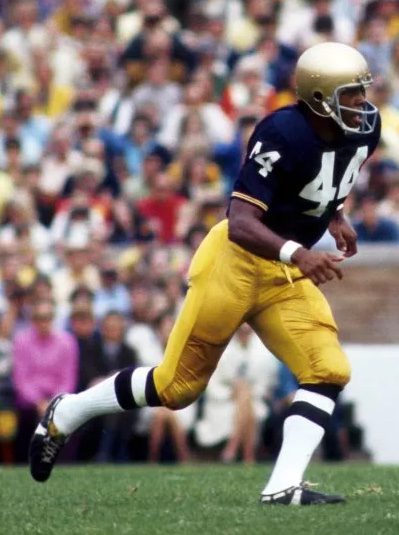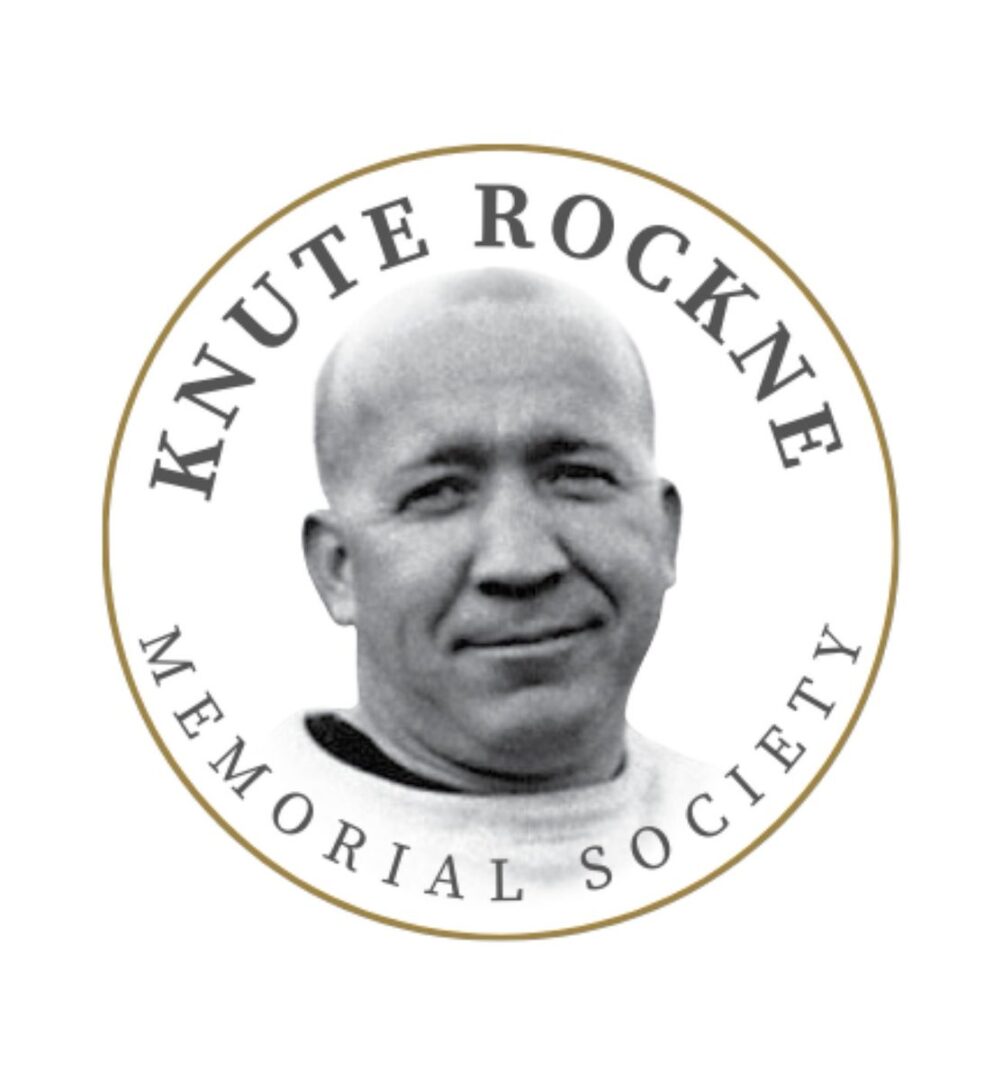
Thom Gatewood
2023 Living Legend award
Thom Gatewood was a latecomer to football, only starting to play as a high school student in his native Baltimore during the mid-1960s. But it didn’t take him long to gain attention as a standout athlete, starring for Baltimore City College high school.
By his senior year, he was inundated with offers to play for the nation’s top colleges, including Alabama, coached by Bear Bryant; Ohio State (Woody Hayes), Michigan (Bo Schembechler) and Penn State (Joe Paterno). He traveled to California and watched Lew Alcindor play basketball for UCLA, and was hosted by O.J. Simpson at Southern Cal.
But to Gatewood, the educational side of the equation was just as important, or moreso, than football.
“At every level of my education, I was at the top of my class, an honor student,” said Gatewood. “My goal was to be the first kid in my immediate family to get a college degree.”
There was one family member who had gone to college. Gatewood looked up to his uncle Clifton Gatewood. “His work was unparalleled; he was a minister in New York who walked in marches alongside Dr. Martin Luther King Jr., who participated in freedom rides, who helped orchestrate so much throughout the Civil Rights movement.”
Gatewood also greatly admired George Young, his football coach, history teacher and mentor at Baltimore CC. Young would go on to a successful career as an NFL executive.
“George Young recognized athletic talent and, more importantly, cared for his students and wanted to ensure I had the best academic future, too.”
In the winter of his senior year, Gatewood was ready to announce his college destination. But George Young had other ideas. He said to his student, “Do me a favor. Don’t commit to a school for the next two weeks.”
“So out of respect for this great man in my life, I waited,” Gatewood said.
During the two weeks, Young put together a highlight film and continued a clandestine conversation he had going with Notre Dame. He then went to his star and urged him to visit South Bend.
Said Young: “There’s two people at this school—Ara Parseghian and Theodore Hesburgh. If those two people are influencing your life, they can make a big difference.”
No more prophetic words have been spoken.
On the football field, Gatewood would snare 157 receptions in his three varsity seasons, (1969-71), a career school record that would stand another 35 years. In 1970, he teamed up with quarterback Joe Thiesmann to become an unstoppable force for the Irish, collecting 77 receptions for 1,123 yards—unheard of totals for the time, in just 10 games. (Jeff Samardzija would break the single-season mark in 2006 with 78 catches, in three more games).
In Notre Dame’s 24-11 upset of Texas in the 1971 Cotton Bowl, ending the Longhorns’ 30-game winning streak, Theismann hit Gatewood with a 26-yard touchdown pass to start the Fighting Irish on their way to victory.
Gatewood received All-American honors and gained a particularly prized spot—the 1971 Notre Dame captaincy, becoming the first Black player to serve in that role.
He was also a Dean’s List scholar who was well aware of his position as a trailblazer in a changing world.
One day, he was called into the office of university president Rev. Hesburgh. It wasn’t to talk about football.
“Father Hesburgh basically spoke to me as if I were Jackie Robinson,” Gatewood recalled.
“He talked to me about his job on the Civil Rights Commission. He talked to me about the issues that faced our world, about his association with Dr. King, about change and the importance of leadership. And then, he wanted to know what was in my heart.”
Gatewood told him: “When I view TV or other sources of media, I don’t see faces like mine there. I’m hearing stories from a different face, the faces that are here at Notre Dame, and we need more African-American students, professors and mentors on campus to give us the faith and confidence that yes, things are changing and we’re not stuck in the same world.
“Fr. Hesburgh talked about Robinson’s grit and intelligence and how those two tools together were his strength. He understood the power in corralling his anger, the power of the media, the power of his struggle. If I could corral my own impatience, my own pain, and turn it into something positive.”
And that’s what Gatewood, who was also an Academic All-American, would go on to do. After a brief stop in the NFL, he worked in television news and sports as a director and stage manager. His work earned an Emmy and a Peabody award. He has operated his own communications business. And made countless friends far and wide—people who respect his intelligence and integrity.
In 2015, he was inducted into the College Football Hall of Fame.
These days, he and his wife Susan enjoy their days, often spent playing tennis at Notre Dame’s courts. And following the Green Bay Packers, for whom their grandson, A.J. Dillon plays.
So football remains important—as a means to something greater. As a platform. To make a difference. To give power to your vision.
Donate
Support the work of the Knute Rockne Memorial Society with a tax-deductible donation today.
Subscribe
Join our email list to receive the latest news and posts from the Knute Rockne Memorial Society.
